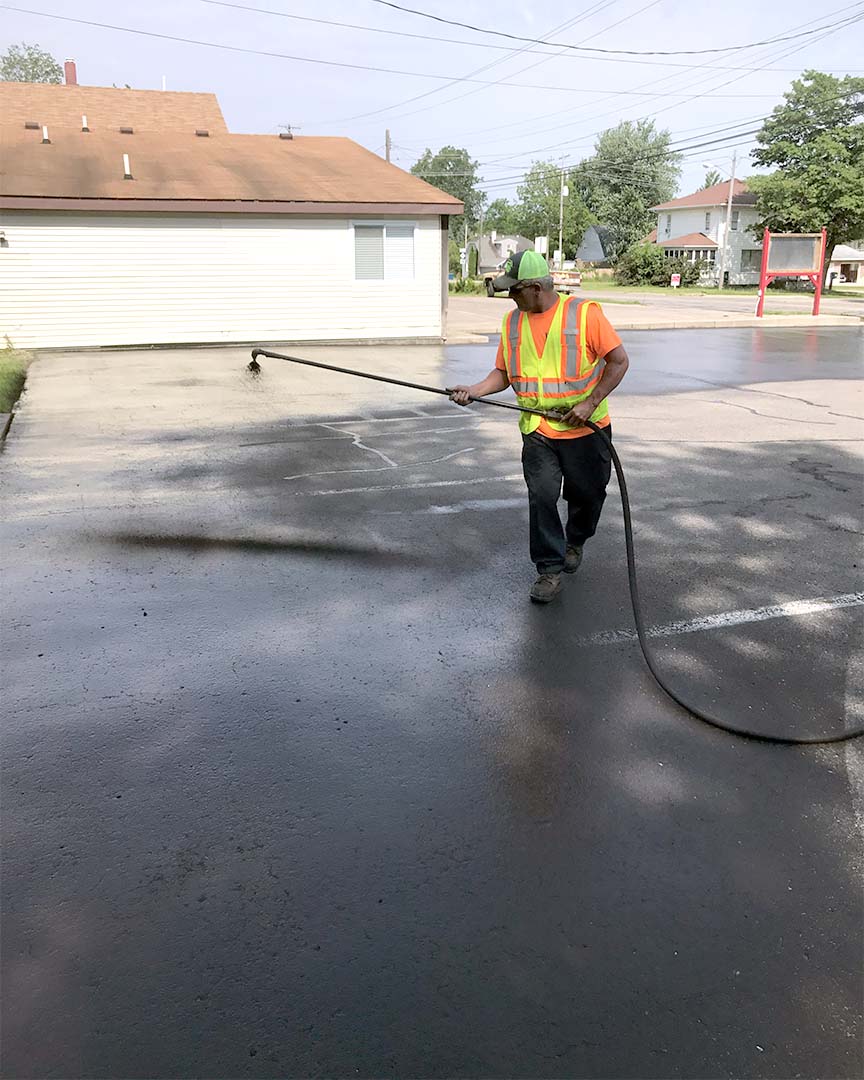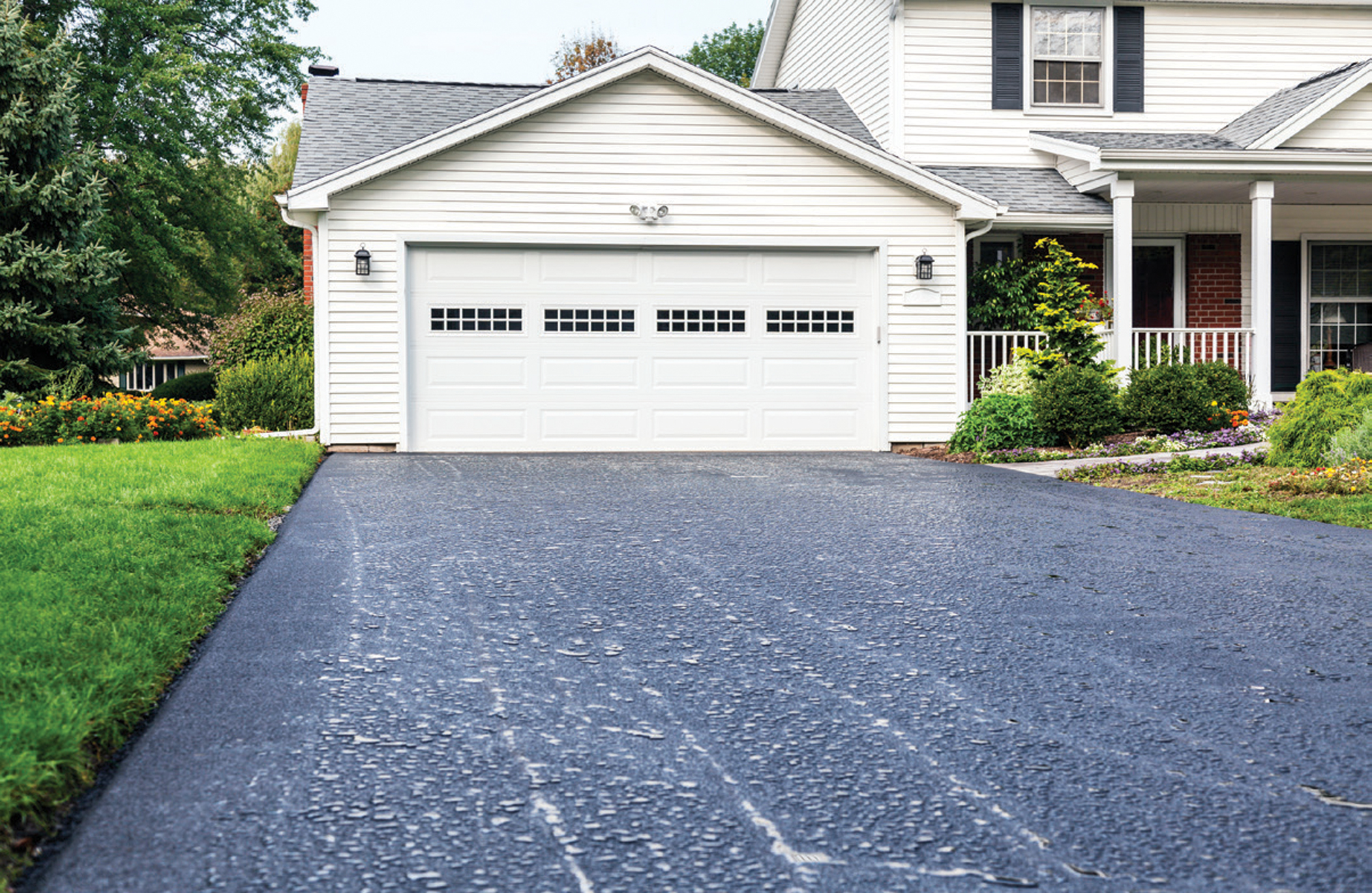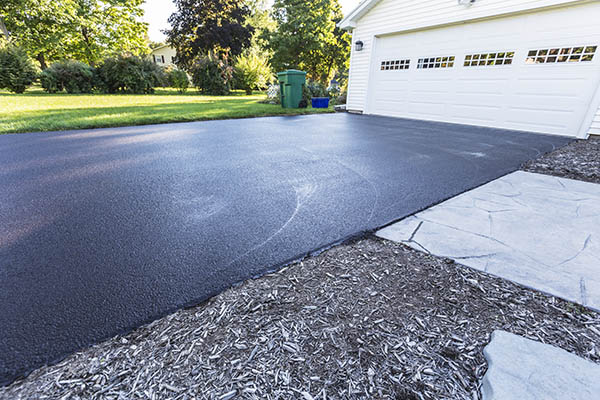Hot Mix Asphalt: A Lasting Service for Pavement
Warm Mix Asphalt (HMA) has actually arised as a leading lasting choice for pavement services, providing a myriad of cutting-edge technologies and environmental benefits. As the demand for environment-friendly construction methods expands, exploring the nuances of HMA's sustainability can give valuable insights right into the future of pavement options.
Environmental Benefits of Hot Mix Asphalt

Furthermore, Warm Mix Asphalt helps to minimize urban warmth island impacts. Its dark color takes in sunshine, minimizing the quantity of warm mirrored back right into the ambience compared to lighter-colored sidewalks. This can reduce ambient temperatures in city locations, reducing the need for air conditioning and inevitably minimizing power consumption.
In enhancement, Warm Mix Asphalt contributes to improved stormwater administration. Its permeable nature permits water to infiltrate the pavement and charge groundwater products, decreasing overflow and the danger of flooding. These environmental benefits make Hot Mix Asphalt a sustainable selection for leading freeways and roadways.
Energy Effectiveness in HMA Production
Is energy effectiveness an essential element in the production of Hot Mix Asphalt (HMA)? Absolutely. Energy plays a considerable function in the production of HMA, affecting both cost and environmental sustainability. One key aspect of power performance in HMA manufacturing is the usage of cozy mix asphalt (WMA) innovations (regrading). WMA permits the blending and positioning of asphalt at reduced temperature levels contrasted to standard warm mix asphalt, causing lowered power usage during manufacturing. This procedure not just decreases fuel use however additionally reduces greenhouse gas exhausts, making it an extra ecologically pleasant choice.
Furthermore, improvements in plant technologies have led to even more energy-efficient HMA production procedures. By optimizing energy use in HMA manufacturing, the industry can minimize its carbon footprint while maintaining top notch pavement materials.
Recyclability of Hot Mix Asphalt
The recyclability of Hot Mix Asphalt (HMA) is a crucial aspect of its sustainability and long-lasting ecological influence. HMA is one of the most recycled materials in the USA, with over 100 million loads of recovered asphalt sidewalk (RAP) being recycled annually in new pavement building and construction. Recycling HMA uses numerous ecological advantages, such as reducing the need for virgin products, decreasing power consumption during production, and additional info decreasing the quantity of waste sent out to land fills.
The process of reusing HMA entails grating the existing pavement, squashing it right into smaller sized pieces, and mixing it with brand-new aggregate and asphalt binder to create a recycled mix. In general, the recyclability of like this HMA plays a considerable role in advertising sustainable practices within the sidewalk market.

Long-Term Efficiency of HMA
Asphalt pavements show resilience and resilience over an extended duration, reflecting the long-lasting efficiency of Warm Mix Asphalt (HMA) Furthermore, advancements in HMA innovation, such as the usage of polymer-modified binders and warm mix asphalt, have better boosted the durability and durability of HMA sidewalks. By prioritizing high quality building and construction and upkeep methods, HMA proceeds to confirm itself as a cost-efficient and sustainable option for long-lasting pavement facilities.

HMA: Longevity and Sustainability
Showing both resilience and sustainability, Warm Mix Asphalt (HMA) has ended up being a cornerstone in the building and construction of resilient sidewalk facilities - hot mix asphalt. HMA's toughness stems from its capacity to endure hefty loads, extreme weather, and high website traffic quantities, check making it a dependable option for roadways, highways, and airport terminal runways. The structure of HMA, which commonly includes aggregates, binder, and filler, plays a crucial function in boosting its longevity and resistance to tear and use
Furthermore, HMA's sustainability hinges on its recyclability and energy-efficient manufacturing process. The capability to recycle redeemed asphalt pavement (RAP) in new HMA blends lowers the demand for virgin materials and lessens the ecological impact of pavement building and upkeep. In addition, the power efficiency of generating HMA hinges on its lower mixing temperature levels contrasted to various other sidewalk materials, resulting in lowered power consumption and greenhouse gas emissions.
Conclusion
In conclusion, warm mix asphalt (HMA) uses a lasting remedy for pavement with its environmentally pleasant attributes. HMA's recyclability, energy performance in production, and long-term longevity make it a green option for road building and construction.
HMA is one of the most recycled materials in the United States, with over 100 million loads of reclaimed asphalt pavement (RAP) being reused each year in brand-new pavement building and construction.The process of recycling HMA includes milling the existing sidewalk, crushing it right into smaller items, and mixing it with brand-new aggregate and asphalt binder to develop a recycled mix.Asphalt pavements show sturdiness and resilience over an extensive period, mirroring the long-term efficiency of Hot Mix Asphalt (HMA) Furthermore, developments in HMA modern technology, such as the use of polymer-modified binders and cozy mix asphalt, have additionally enhanced the sturdiness and longevity of HMA sidewalks. The capacity to reuse recovered asphalt sidewalk (RAP) in new HMA blends minimizes the need for virgin materials and reduces the ecological impact of sidewalk construction and maintenance.